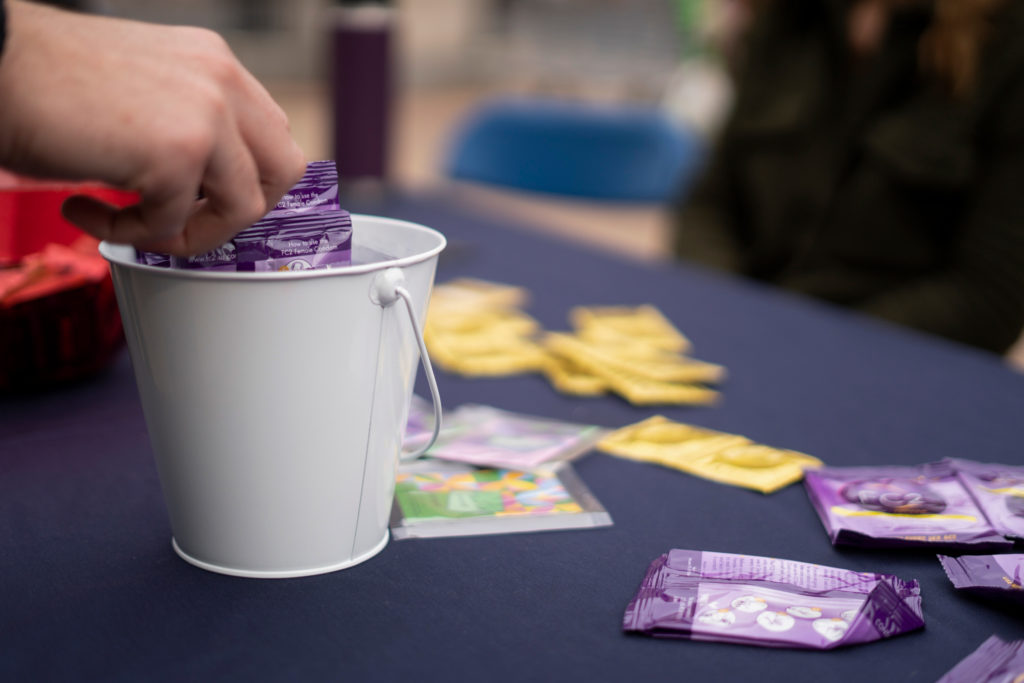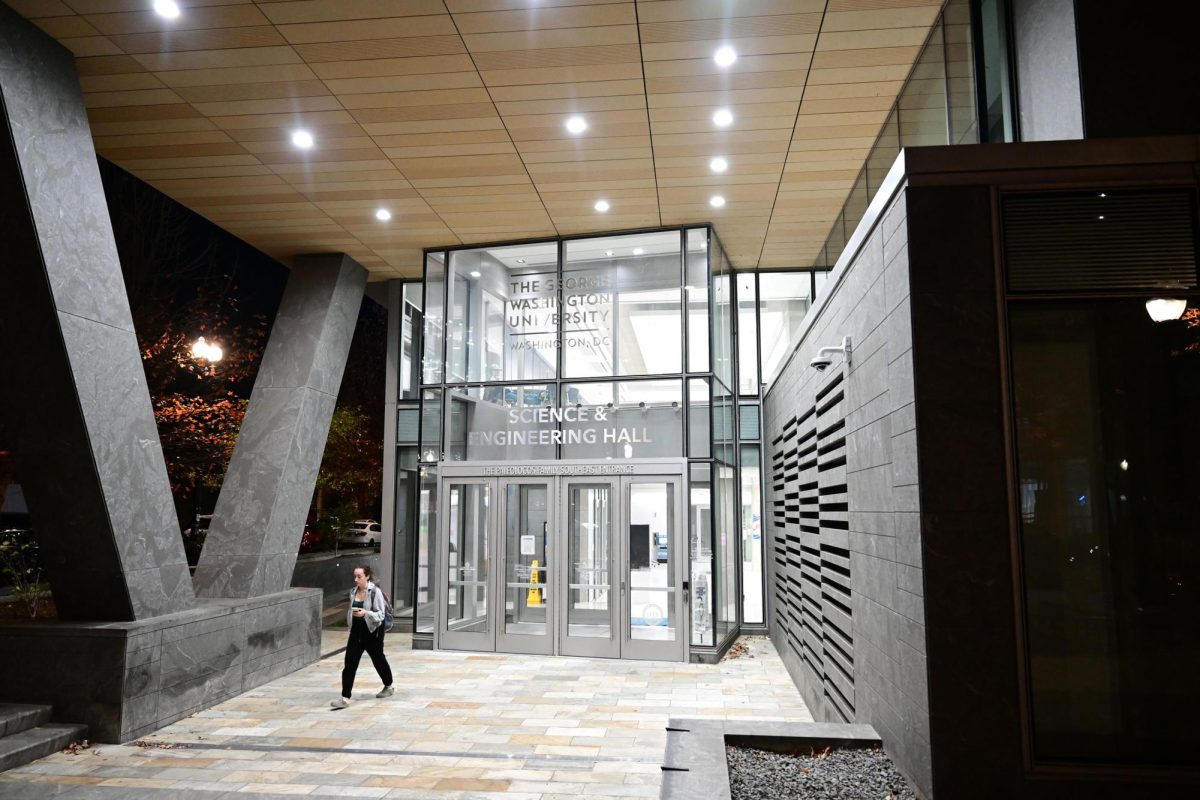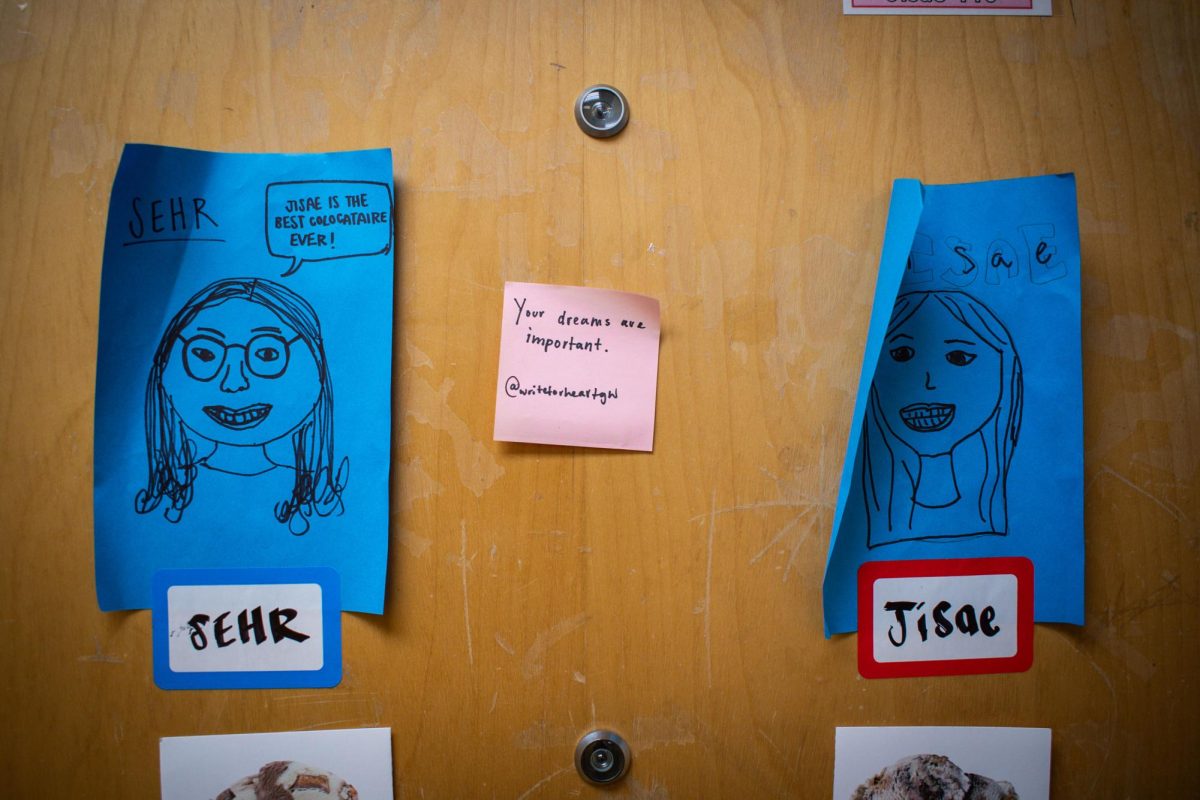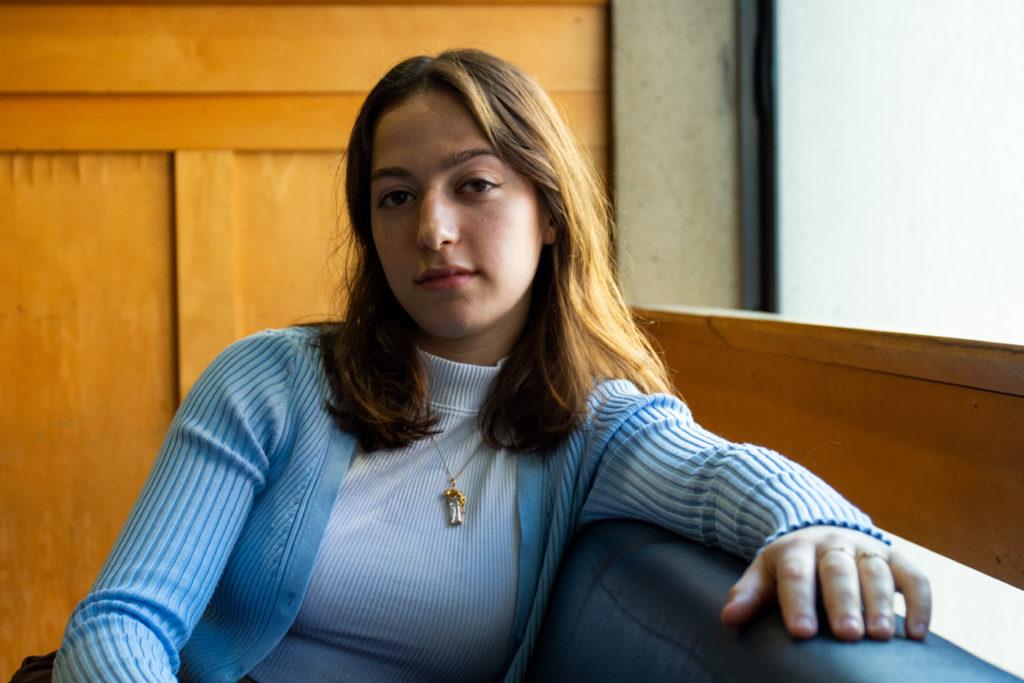Student organizations like the Residence Hall Association and GW Reproductive Autonomy and Gender Equity distributed sexual wellness kits in Kogan Plaza Thursday that included free condoms, pregnancy tests and menstruation products.
Six campus organizations and University departments, including the Office of Advocacy and Support, the Disabled Students Collective, Clearminds and the Student Health Center, gave out free sexual wellness goodie bags in Kogan Thursday to help promote safe sex and create an accessible and safe space for students to acquire these materials. Organizers said they hope the event will help destigmatize sex among students and eliminate sexual health product cost barriers.
Organizations offered resources like stress balls, informational pamphlets on Plan B and consent, pain relief patches, ice packs and lubricant.
Junior Arielle Geismar, the president of RHA, said one of the organization’s objectives is to promote sexual health for students on campus and supply resources in residence halls in addition to Thursday’s event.
“I hope that as students walk through Kogan with their friends that they see topics like these as less taboo and more okay to talk about,” Geismar said, “I’m also hoping that students walk away knowing more about their sexual health and education.”
Geismar estimated that hundreds of students visited their six tables within the first hour they had set up in Kogan, and she heard positive feedback from many students appreciating how the organizations were giving out these products for free as they passed through.
“I think it’s really cool to just see students take what they need,” Geismar said. “Very rarely do we see all of these resources available in one spot at the same time, so I’m really excited that RHA is providing that.”
Madison Jennings, a first-year graduate student studying public policy and the president of DSC, handed out pain relief patches and ice packs for sexual aftercare.
Jennings said in addition to raising awareness for sexual wellness from the perspective of the disabled community, the event gave students access to sexual health products despite price and accessibility barriers students may face when attempting to buy them in stores.
“I am less knowledgeable in that area because I live off campus,” Jennings said. “I sometimes feel that I’m less connected to the resources and less knowledgeable. As an off-campus student, there’s a little bit of a gap there.”
Freshman Maddy Niziolek, the co-president of GW RAGE, said the organization handed out free condoms that the group acquired from donations by the D.C.-based nonprofit Advocates for Youth’s Condom Collective.
“It’s an open thing that we can talk about, that makes everyone safer and it shouldn’t be something that’s stigmatized,” Niziolek said. “It’s to raise awareness for a bunch of different orgs who do this work and also decrease stigma on campus and provide students with the resources they need and might not otherwise be able to afford.”
Niziolek said that GW RAGE hopes the event will help students who may not be able to afford these sexual wellness items and increase accessibility for students. She said RAGE also hopes the Plan B vending machine launched in the University Student Center last month will eventually offer emergency contraceptives for lower prices than the $30 they are selling it for currently.
“For some students buying condoms or buying Plan B would mean the difference between not eating or not being able to afford their rent or something else.” Niziolek said. “At RAGE, we believe that it is a right for people to have these products and be able to practice safe sex and to be able to control their own reproduction in the way that they want.”
Anissa Tanksley, a prevention specialist at the Office of Advocacy and Support and a Student Bar Association senator, said OAS provided informational pamphlets about their office services and information about consent and healthy relationships. Tanksley said OAS’s goal was to inform students about their services for community members, like being a confidential resource for sexual violence victims.
“Our personal goal is to make sure that as many students on campus as possible know who we are, have our number, and know that we are a resource that is confidential to students who’ve experienced any type of intimate partner violence or sexual violence,” Tanksley said. “We’re, in fact, one of the only confidential resources on campus for students.”
Tanksley said OAS is “so proud” of GW for encouraging students to access sexual wellness products, and she hopes the event will help strengthen students’ feeling of support from their campus.
“A big part of what we do at the Office of Advocacy and Support is create a space that’s both comfortable and safe for students who’ve experienced any type of sexual violence or unhealthy sexual or intimate partner relationships,” Tanksley said. “Part of the support that we want to provide on campus is also building on a really positive, safe and fun sex culture that students can be proud of and feel safe to talk about with one another.”











